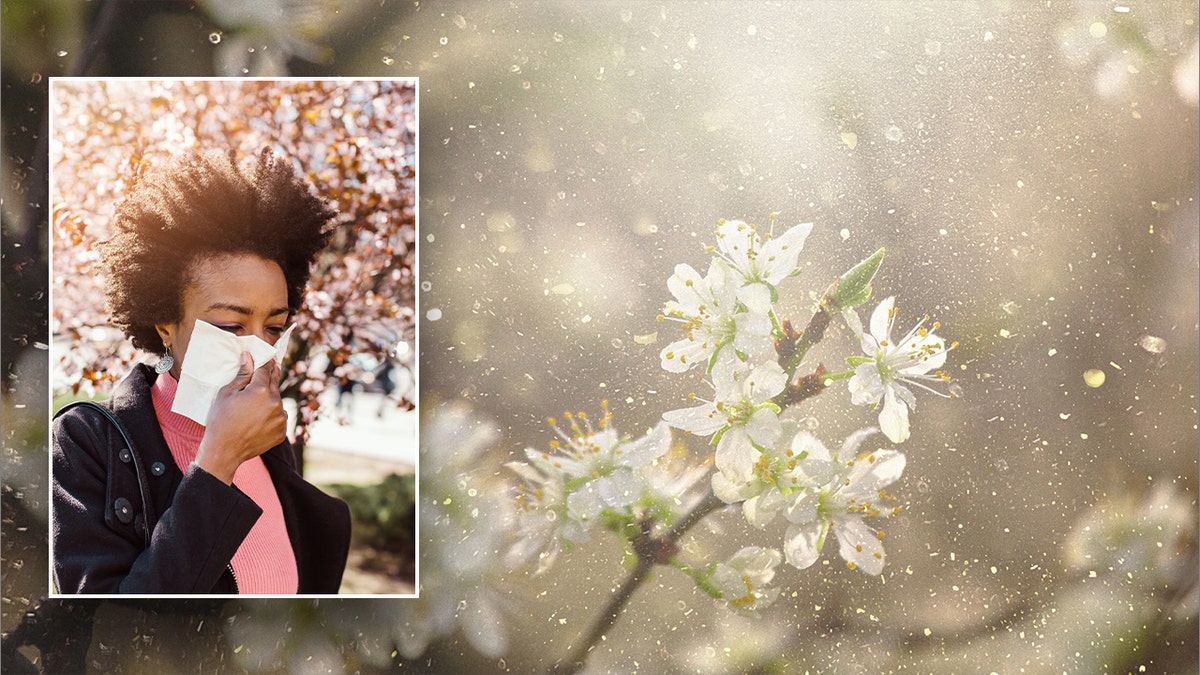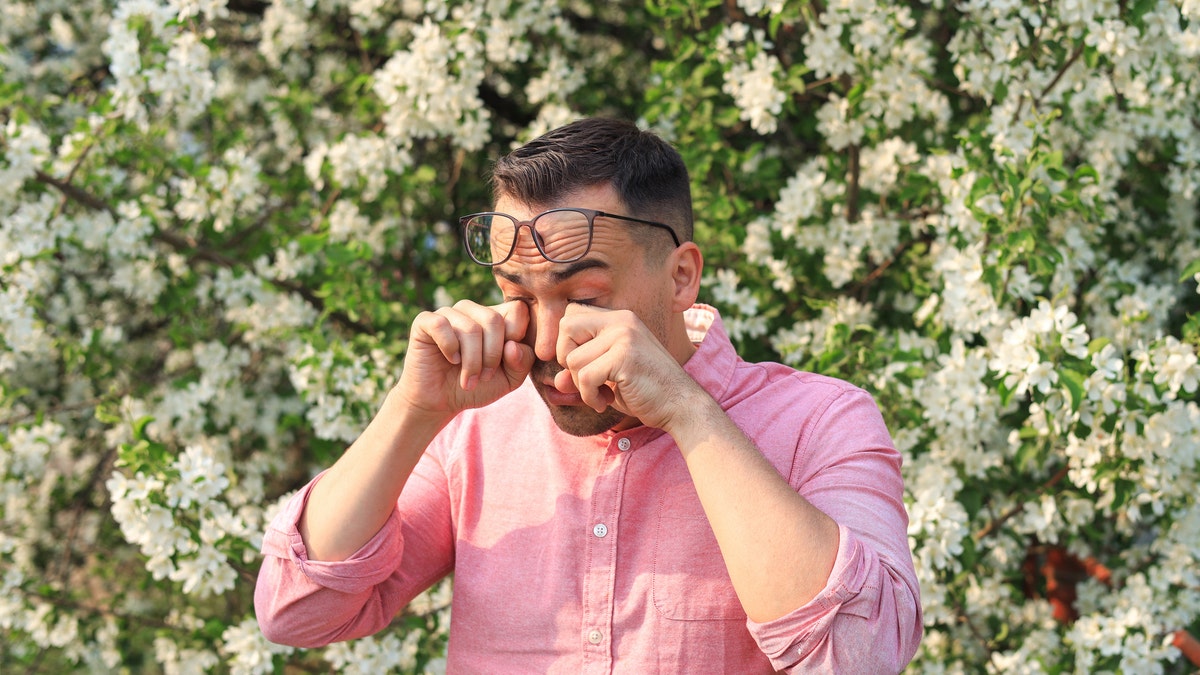Summer allergies can be a hindrance to your plans.
With flowers in bloom, and warm, damp weather causing mold to form, many find themselves reaching for tissues through June, July and August.
A person can develop allergies throughout the year for a variety of reasons. There are seasonal allergies that come about from symptoms related to the season and perennial allergies that can happen at any time of year, as they are triggered by indoor allergens such as dust.
Here is everything you need to know about seasonal allergies you could experience in the summer and how they can be treated so you can enjoy long days in the sun.
- Why are my allergies so bad in the summer?
- What are the symptoms of summer allergies?
- When should I see a doctor for my summer allergies?
- What helps summer allergies?
- How do I know if I have a cold or allergies?

Don’t let allergy symptoms get in the way of your summer fun. Learn about common triggers and how to relieve your symptoms. (iStock)
1. Why are my allergies so bad in the summer?
There are many triggers for summer allergies, but one of the most common during June and July is grass pollen, according to Yale Medicine. During late summer and fall, mold and ragweed are common triggers.
Insects are active in the summer, making bites, predominantly mosquito bites, more common, which can lead to allergy symptoms like itching and redness, depending on the severity of an individual’s allergic reaction to a sting.
Perennial allergies are not confined to the summer. Rather, perennial allergy symptoms appear constantly throughout the year when exposed to a specific allergen, like dust mites, pet dander or mold, according to Yale Medicine.
STAY FRESH IN THE HEAT OF SUMMER WITH 5 HYGIENE TRENDS FROM DERMATOLOGISTS
If you notice that your allergies aren’t specific to a season, you may be experiencing perennial allergies.
2. What are the symptoms of summer allergies?
There are many different symptoms you could experience if you have allergies.
You could experience all or just certain allergy symptoms.

There are many different symptoms you could experience due to allergies, like itchy, watery eyes. (iStock)
You can experience these symptoms if allergens are inhaled through the nose and lungs, according to the Asthma and Allergy Foundation of America. Additionally, an allergic reaction can come from allergens being ingested by the mouth, injected into the body (like an insect bite) or through absorption by the skin, according to the source.
Common symptoms that are associated with seasonal allergies are itchy, watery eyes, itchy throat and stuffy, runny nose, according to Yale Medicine.
3. When should I see a doctor for my summer allergies?
You should see a doctor for summer allergies when you have prolonged symptoms.
CLICK HERE TO SIGN UP FOR OUR LIFESTYLE NEWSLETTER
If you are taking over-the-counter medication that isn’t working, it may be time to take a trip to the doctor.
A lot of cases can be treated and diagnosed on your own, but there are more severe cases that need the assistance of a medical professional.
You may have to take an allergy test to uncover the specific type of allergens you are being affected by. Then, you and your doctor can work together to create a treatment that is best for you.

If you have tried home remedies and over-the-counter medicine to help allergy symptoms with no success, it may be time to see a doctor. (iStock)
This could mean immunotherapy, which is typically given in the form of allergy shots or a medicated prescription to treat your symptoms.
4. What helps summer allergies?
Luckily, there are several things you can do to help treat summer allergies. There are actually things you can do before symptoms strike if you’re aware of when they’ll likely take hold of you.
Shower and change your clothes after being outside to wash off any pollen that may have clung to you. Also, be sure to give your sheets and blankets a frequent wash.
Additionally, get in the habit of checking local pollen levels. These can be found in weather forecasts.
If there are high pollen counts forecast on a certain day, it may not be the ideal time to mow the lawn or work for hours in the garden.
For more Lifestyle articles, visit www.foxnews.com/lifestyle
Windy days make pollen in the air worse, so keep that in mind as well.
Try avoiding hanging laundry outside because pollen could stick to it and cause a problem for you later on.
It’s also important to keep the air inside the house clean through the use of a dehumidifier or an air conditioner.
There are plenty of allergy medications readily available for those affected by summer allergies.

To help keep your allergy symptoms at bay, give clothes a good wash after being outdoors. (iStock)
Antihistamines like Zyrtec, Claritin or Allegra can help you breathe better.
There are also nasal sprays and decongestants.
5. How do I know if I have a cold or allergies?
Cold symptoms are very similar to allergy symptoms, making it difficult to tell what you are experiencing and what you should do to help yourself feel better.
With a cold, there are key symptoms that are more likely to appear than in the case of seasonal allergies. For example, you can sometimes have a fever with a cold, according to Mayo Clinic, but never with allergies.
Additionally, a sore throat and cough are common when it comes to a cold, but more rare in an allergy case, according to the source.
CLICK HERE TO GET THE FOX NEWS APP
Also, the duration of a cold is usually shorter than allergies, according to Mayo Clinic.
Make note of your key symptoms and how long they last to help you determine if you are experiencing a cold or allergies.
